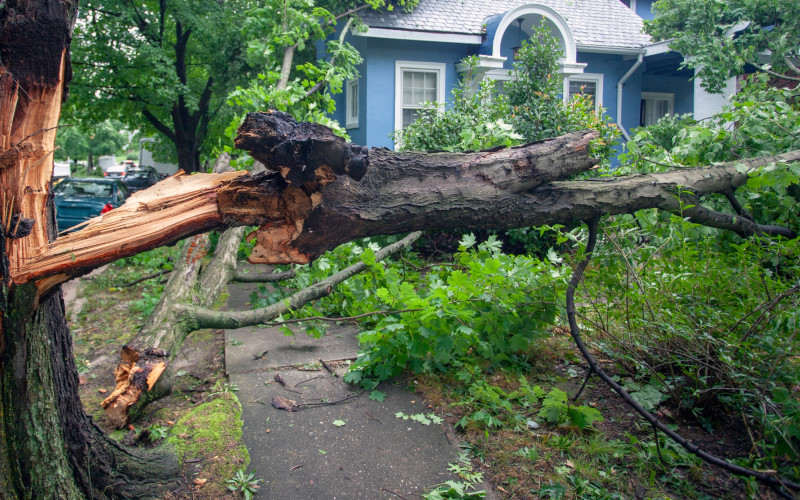
Storm Damage Repair Scams: What You Need to Know
Homeowners often face urgent repairs to restore their property after severe weather events, like catastrophic storms or other natural disasters. Unfortunately, scam artists posing as contractors seize these moments of vulnerability, promising quick fixes while leaving behind shoddy work or disappearing entirely after taking payment.
These scams can be devastating, leaving homeowners with unfinished repairs, potential financial losses, and, in some cases, legal troubles such as construction liens placed on their homes for unpaid balances.
Repair scams typically follow a familiar pattern. Once a significant weather event has passed, scammers will target affected neighborhoods with unsolicited offers to inspect damage or provide repair services. They may claim to have noticed damage to a roof or other parts of the home that the homeowner's insurance would cover. Sometimes, they will ask homeowners to sign a form before starting the inspection, which might give the scam artist authorization to act as the homeowner's agent with the insurance company.
Once the inspection is finished, they often "discover" significant damage and offer to manage everything as long as the homeowner signs over the insurance payment. If the homeowner agrees, these individuals may disappear with the payment or deliver subpar repairs, leaving the homeowner with bigger problems to resolve.
Here are some variations of these scams:
Free Inspections: Flyers or in-person solicitations offering free roof or home inspections after a storm are a common tactic. The scam artist often finds "significant damage" and assures the homeowner that their insurance will cover the repairs. Once paid, they may vanish without completing any work.
Discount Offers: Some scammers will offer repairs at a discount because they supposedly have leftover materials from a previous job. These offers often come with high-pressure sales tactics and threats that the deal is only available if accepted immediately.
Insurance Deductible Scams: Another approach involves the scammer offering to waive or refund the homeowner's insurance deductible, further enticing the homeowner to sign over insurance checks. This can be a red flag for a scam in progress.
Protect Yourself from Weather-Related Repair Scams
Be wary of unsolicited offers: Legitimate contractors don't go door to door after storms looking for work. If someone shows up unannounced offering services, be cautious.
Be skeptical of "insurance-covered" repairs: If a contractor is overly eager to see your insurance policy or offers to waive the deductible, it could be a scam. Always contact your insurance company directly if you're uncertain.
Take your time: Don't feel pressured to make quick decisions. If a deal seems too good to be true or only valid for an immediate agreement, it's likely a scam. Get multiple quotes, verify credentials, and thoroughly review contracts.
Verify contractor licenses: In Tennessee, for example, you can verify a contractor's license online through the state's license verification website. Check reviews, ask for references, and confirm their credentials before agreeing to any work.
Understand your rights: In many states, homeowners can cancel a service contract within a certain period (typically three days). Ensure any contract you sign includes an explicit cancellation clause. Be particularly cautious if the contractor asks you to sign away your right to cancel due to an "emergency."
Following these guidelines can help you protect yourself from falling victim to a weather-related repair scam and allow for home repairs that are completed professionally and ethically.
Read more contractor hiring tips from the Tennessee Department of Commerce & Insurance.
Tennessee Insurance: Read More

What is an Auto Deductible?
October 9, 2024
When it comes to auto insurance, understanding the terminology is crucial to making informed decisions about your coverage. One term that often comes up in discussions about car insurance is the “auto deductible.” Read more

What Is Business Insurance?
December 10, 2024
Whether you are a small business owner or a seasoned entrepreneur, having the right insurance coverage is crucial to protect your assets and mitigate various risks. In this article, we aim to provide you with an in-depth understanding of what business insurance is, its significance, and how it can contribute to your company's success. Read more

What's The Difference Between Term and Whole Life Insurance?
May 31, 2024
Life insurance is a crucial aspect of financial planning, offering peace of mind and financial security for your loved ones in the face of life's uncertainties. In this article, we'll explore the key differences between these two options. Read more
